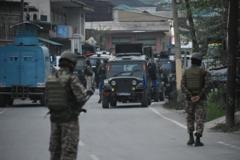Merz's government faces the challenge of uniting a fragmented political landscape while addressing external tensions.
Friedrich Merz Takes Office as Germany's New Chancellor, Ending Political Stalemate

Friedrich Merz Takes Office as Germany's New Chancellor, Ending Political Stalemate
Germany's new leader vows to revitalize the economy and tackle growing far-right sentiments.
Germany's parliament is preparing to endorse Friedrich Merz, leader of the Christian Democratic Union (CDU), as the new Chancellor, concluding a period of political paralysis following the collapse of the previous government. At 69, Merz is asserting his commitment to rejuvenating Germany's economy and enhancing its global standing while navigating a complex domestic and international climate.
Upon signing a coalition agreement with the Social Democrats (SPD), Merz stated, "It's our historical duty to make this government a success." However, he steps into leadership amid significant challenges, including rising far-right sentiments exemplified by the Alternative für Deutschland (AfD), which has now become the main opposition force in the Bundestag after a turbulent election cycle.
Merz's coalition boasts a slim majority of 328 seats, a narrow margin that could complicate legislative efforts. Supporters within the CDU believe their governance can alleviate public dissatisfaction, emphasizing a measured approach to problem-solving. Promises to tighten immigration rules, invest in dilapidated infrastructure, and strengthen ties with European allies will be critical components of his agenda.
Recent legislative actions taken by Merz, like exempting defense spending from strict fiscal regulations, signify his intent to reinforce Germany's military capabilities. Yet, attracting public support for increased defense spending remains a daunting task. Analysts highlight that the political backdrop presents hurdles for Merz, especially with the AfD pushing a controversial platform that includes limiting immigration and reevaluating Germany's alliances.
Furthermore, the AfD, which has been designated an extremist organization by federal intelligence, may test the resilience of Merz's administration, particularly as he manages relations with the U.S. and European partners. Early commitments to visit Paris and Warsaw indicate Merz's focus on restoring cooperative ties following perceptions of weakness under former Chancellor Olaf Scholz.
Agnieszka Pomaska, a member of the Polish parliament, expressed optimism in a joint defense strategy, underscoring the need for stronger cooperation with Germany. As Merz assumes power, heightened scrutiny over external and internal politics will define his leadership path as he seeks to stabilize his coalition while addressing pressing global issues.
Upon signing a coalition agreement with the Social Democrats (SPD), Merz stated, "It's our historical duty to make this government a success." However, he steps into leadership amid significant challenges, including rising far-right sentiments exemplified by the Alternative für Deutschland (AfD), which has now become the main opposition force in the Bundestag after a turbulent election cycle.
Merz's coalition boasts a slim majority of 328 seats, a narrow margin that could complicate legislative efforts. Supporters within the CDU believe their governance can alleviate public dissatisfaction, emphasizing a measured approach to problem-solving. Promises to tighten immigration rules, invest in dilapidated infrastructure, and strengthen ties with European allies will be critical components of his agenda.
Recent legislative actions taken by Merz, like exempting defense spending from strict fiscal regulations, signify his intent to reinforce Germany's military capabilities. Yet, attracting public support for increased defense spending remains a daunting task. Analysts highlight that the political backdrop presents hurdles for Merz, especially with the AfD pushing a controversial platform that includes limiting immigration and reevaluating Germany's alliances.
Furthermore, the AfD, which has been designated an extremist organization by federal intelligence, may test the resilience of Merz's administration, particularly as he manages relations with the U.S. and European partners. Early commitments to visit Paris and Warsaw indicate Merz's focus on restoring cooperative ties following perceptions of weakness under former Chancellor Olaf Scholz.
Agnieszka Pomaska, a member of the Polish parliament, expressed optimism in a joint defense strategy, underscoring the need for stronger cooperation with Germany. As Merz assumes power, heightened scrutiny over external and internal politics will define his leadership path as he seeks to stabilize his coalition while addressing pressing global issues.



















